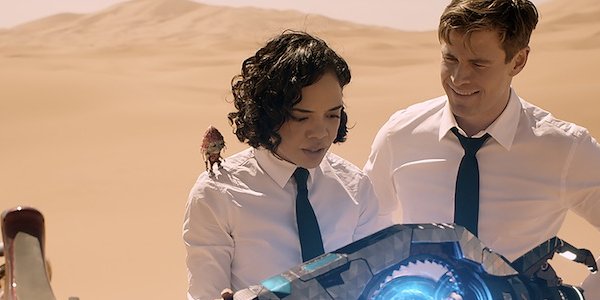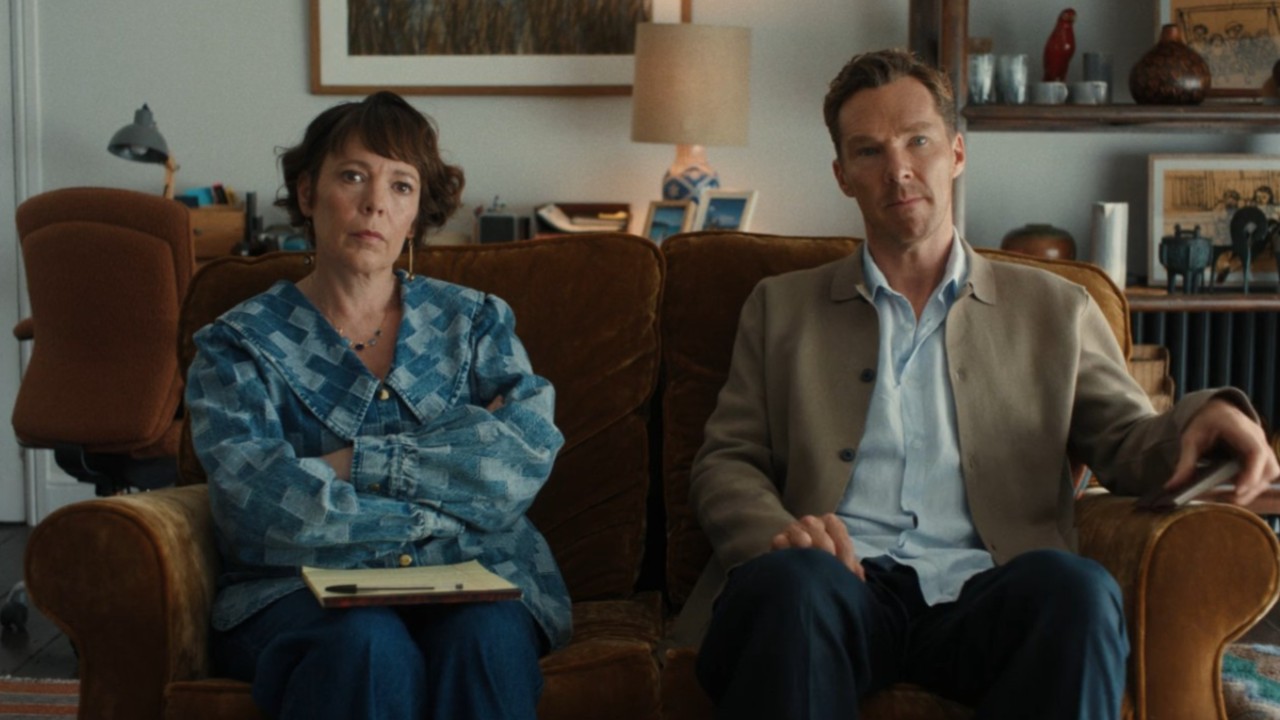How Tessa Thompson’s Men In Black International Character Brought The Franchise Back To Life

There has been a lot of anticipation for the next film in the Men In Black series for a while now, and a lot of that stems from the fact that it’s a project that has long felt inevitable. Barry Sonnenfeld’s Men In Black 3 may have wrapped up the trilogy starring Will Smith and Tommy Lee Jones, but what was still left on the table after the 2012 blockbuster was the franchise-equivalent of a playground. There are thousands of potential stories to be told in the alien-filled world, and it’s a brand name that every movie-goer recognizes. Hollywood was simply never going to just let something like Men In Black stay tucked away on the high shelf forever.
Sure enough, we are now days away from the fourth chapter in the series, F. Gary Gray’s Men In Black International, and as its title suggests, it will be scaling things up - from being about adventures on the streets of New York, to those that span multiple continents. As big a deal as that is, though, what might come as a surprise is the fact that we wouldn’t be getting this new generation of Men In Black without the concept behind the creation of Molly a.k.a. Agent M, the new hero played by Tessa Thompson.
Earlier this month I had the pleasure of sitting down with producers Walter Parkes and Laurie MacDonald – who have been involved with the franchise from the beginning – and it was during conversation about the Men In Black-less years from 2012 until now that I learned about the immense impact that the Molly character had on the development of the series’ latest sequel.
The discussion began with the revelation that there actually was a time when it looked like the films about black-clad secret agents hiding alien secrets was coming to an end (contrary to that whole aforementioned “inevitable” feeling). Between the producers, Will Smith, Tommy Lee Jones, and director Barry Sonnenfeld there was consensus that the arcs of Agent J and Agent K had reached their natural conclusion, and there was no reason to keep that train rolling. Parkes and MacDonald explained that the whole kit and caboodle was nearly packed in as a result:
Walter Parkes: I wouldn't say there was initially even an attention necessarily to reignite it. Everyone involved from Will to Barry to Tommy, all of us sort of said, 'That story is told.'Laurie MacDonald: We felt that, especially with the third it felt complete. So there was no talk of ever doing it with the original group. And then...
Obviously that’s a big “and then.” New ideas were taken into consideration that would expand the franchise beyond its established leads. For a minute there was even notable talk about the potential of a crossover between Men In Black and 21 Jump Street. Eventually, however, a different direction was settled on, and it all centered around the birth of a very special protagonist.
Laurie MacDonald and Walter Parkes decided that a new Men In Black movie was only going to get moving if it they came up with special nugget of an idea that would be able to exist as the core of the story being told, and as MacDonald explained, that arrived with the concept behind Tessa Thompson’s character:
It was really the character idea of Molly. It was the idea of a young girl who sees an alien, and sees her parents get Neuralyzed, and knows the truth about the universe while everyone around her thinks she's crazy. And because of her intelligence and her determination, she becomes obsessed with getting in [to the Men In Black].
This is the way in which Men In Black International brings audiences back into the world of the franchise, as the majority of the first act is dedicated to Molly’s “origin,” and her drive to join the titular organization. It was the filmmakers’ specifically chosen path for the new movie, and it was deemed so crucial that it existed in its general form in every single draft of the project’s screenplay – even drafts that were completely different than what audiences are going to see in theaters. MacDonald explained,
Your Daily Blend of Entertainment News
All screenplays usually go through many lives, and certainly in these movies you go through many plots and set pieces - all of those things can change. But the one thing that stayed through all the drafts we did was her character.
As the filmmakers continued, I further learned that the development strategy behind Men In Black International was actually very similar to the tact that was taken with the original Men In Black in the mid-1990s (loosely based on a six issue comic book of the same name). Clearly it was a development strategy that worked back then, leading to the creation of the second biggest blockbuster of 1997 (behind only Titanic), and so they were making use of it once again.
Picking up the baton from his producing partner, Walter Parkes explained how it was a similar core idea based in character that ultimately defined the first Men In Black. Said Parkes,
For the first movie, we had an entire script written, which we largely started over on. And the only element that was in that [version of the script] that remained in the last one was the idea that it was about one character who wanted to give up his life to see how the universe works and understand it, and you find out that the other character wants to give up knowing how the universe works. He wants his life back. That's a very good, strong, simple idea.
Continuing, Parkes noted the importance of having that kind of core prompt for a film, as it can operate as a foundation for all of the various details that are built on top of it:
[T]hat's a good simple idea for which many plots can be created. And sure enough, we actually did create a whole script, and that is the only element that in the final script that we shot. So even though these seem to be about special effects, the comedy - and they are - and the plot, and the plot mechanics and the genre and all that, for us it's sort of finding what's the central issue in the movie? Even if it's barely visible, it's the foundation that gets you through the very difficult process of developing these things.
It’s been a long ride for Molly, journeying through the many production stages of the typical Hollywood blockbuster, but finally she’s getting ready to arrive on movie screens all around the world. Men In Black International, which co-stars Tessa Thompson, Kumail Nanjiani, Liam Neeson, and Emma Thompson, is hitting theaters this Friday, June 14th.
Be sure to stay tuned here on CinemaBlend in the coming days for more from my interviews with the cast and filmmakers.

Eric Eisenberg is the Assistant Managing Editor at CinemaBlend. After graduating Boston University and earning a bachelor’s degree in journalism, he took a part-time job as a staff writer for CinemaBlend, and after six months was offered the opportunity to move to Los Angeles and take on a newly created West Coast Editor position. Over a decade later, he's continuing to advance his interests and expertise. In addition to conducting filmmaker interviews and contributing to the news and feature content of the site, Eric also oversees the Movie Reviews section, writes the the weekend box office report (published Sundays), and is the site's resident Stephen King expert. He has two King-related columns.
